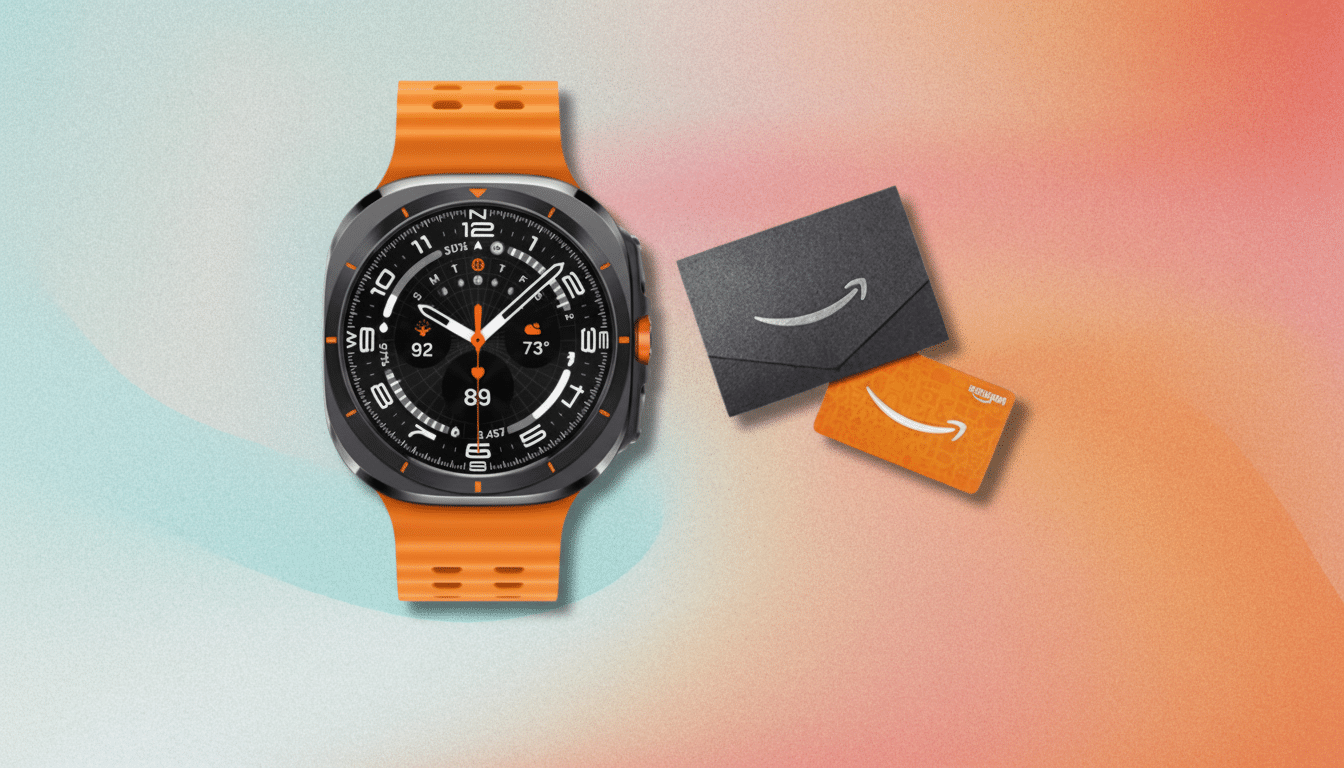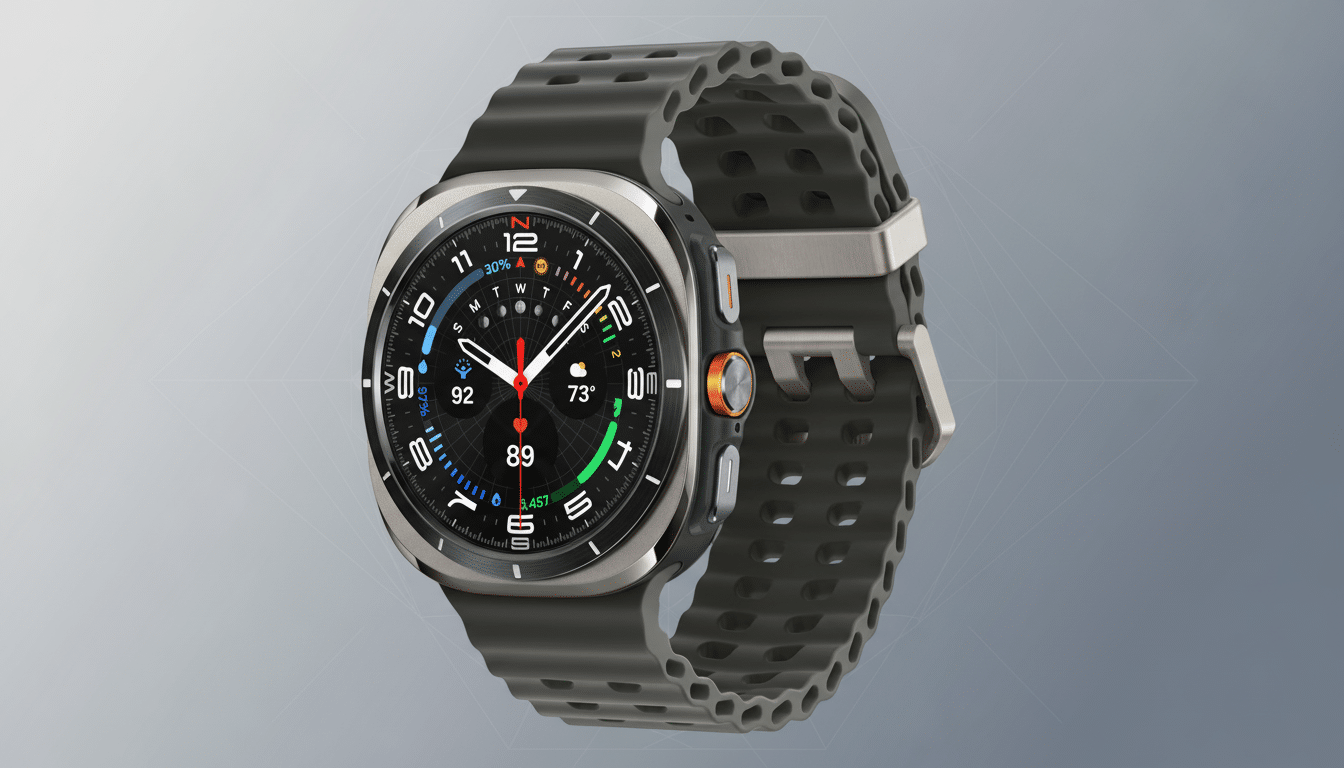The Samsung Galaxy Watch Ultra is rarely on sale with an instant $100 savings, bringing the rugged flagship down to $549.99 from its list price of $649.99. That 15% discount is its lowest to date, and it makes one of the best Android smartwatches more affordable at the height of the shopping season.
Why this Galaxy Watch Ultra price cut truly matters now
It’s rare (especially for a premium wearable) that you’ll see a triple-digit reduction quite this fast — and few are titanium, too. With rival devices holding the line on pricing, a $549 price tag slots the Galaxy Watch Ultra as a high‑end option that’s hundreds of dollars less expensive than some rivals but at least meets or surpasses them in durability, battery life, and training tools.
- Why this Galaxy Watch Ultra price cut truly matters now
- Hardware built for rough use and demanding conditions
- Battery life improvements and performance gains explained
- Training tools and fitness metrics that stand out
- Market context and real-world feedback from buyers
- Who should hop on this Galaxy Watch Ultra deal now
- Bottom line: is the Galaxy Watch Ultra worth it now?

Hardware built for rough use and demanding conditions
The Ultra’s titanium case, sapphire crystal lens, and 1.5‑inch AMOLED display are built to withstand knocks, scrapes, and glare-heavy conditions. It has a 10 ATM water resistance rating, IP68 protection, and meets MIL‑STD‑810H durability requirements — which is handy if you split your time between the gym floor and wet, rocky trails. A single Quick Button on the side of the case detects presses to start routines or user programs, and an integrated safety siren assists with roadside visibility or emergency hiking situations.
Battery life improvements and performance gains explained
Inside is a 590mAh cell that can provide up to a claimed 100 hours in power‑saving modes. In practical mixed-use terms, you’d be expecting 2–3 days depending on display settings, GPS, and the frequency of your health tracking. All this is made possible by the 3nm chipset from Samsung, which basically means faster app launches and more speed for maps that move more smoothly (which flick around nicely while switching between workouts, turn‑by‑turn navigation, and notifications).
Training tools and fitness metrics that stand out
Dual‑frequency GPS increases the accuracy of routes in built-up cities and under tree cover; an upgrade endurance athletes may find useful. The watch features custom heart‑rate zones and advanced running dynamics, a running coach as featured in the Forerunner 620, and can show live race pace. Health monitoring includes 24/7 heart rate measurements, SpO2 tracking, HRV recording, ECG, and body composition via the built-in BioTracker 2 PPG sensor (blood pressure in some countries too). Sleep aspects include a stage breakdown, an overall score, and guided tips to become more consistent over time.
Among the brand’s regulatory news earlier this year, it received clearance in the U.S. for a sleep apnea detection feature on certain models.
Availability varies by market, and you should ask for confirmation in your territory, but it shows how wearables are creeping more into clinically useful insights. Like all these tools, none of them replace medical devices, but they do offer useful trend data that can lead to earlier conversations with the pros.

Market context and real-world feedback from buyers
At major retailers, the Galaxy Watch Ultra maintains an average rating of about 4.5 stars as owners rave about its durable build, readable bright screen, and consistently reliable GPS during long runs. Most complaints are about the watch being too large for smaller wrists, and some first-time buyers need a bit of time to get used to the customizable Quick Button. The premium wearables category has been growing strongly this year, as per industry trackers like Counterpoint Research, and after a discount Samsung’s value proposition gets even stronger compared to its top-tier competitors.
There is price positioning, too. At $549.99 during this promotion, the Ultra is about 31% less expensive than some of its most notable adventure‑class competitors, which begin around $799, and offers similar durability features and multi‑day endurance.
Who should hop on this Galaxy Watch Ultra deal now
If you’re on Android — especially with a recent Galaxy phone — the integration is great, from call handling to health data syncing that “just works.” Trail runners, triathletes, and hikers are likely to make most use of the dual‑frequency GPS, robust case, and safety siren. Going from a Galaxy Watch 5 or earlier gets you significant battery, accuracy, and speed benefits. For owners of the most recent generation, the price to switch up, for those who have been lusting after a tougher watch that’s not so flashy and is ideal to train in or travel with, has got to seem alluring.
Bottom line: is the Galaxy Watch Ultra worth it now?
With a $100 instant discount here on the Galaxy Watch Ultra, it’s hard to argue against a buy at this point.
You’re receiving a titanium‑sapphire construction, multi‑day battery life capabilities, highly accurate GPS, and some serious training features at a price that’s actually quite aggressive for the segment. If a tough, high‑end Android smartwatch has been on your list, this is the kind of discount that doesn’t come up too often.

